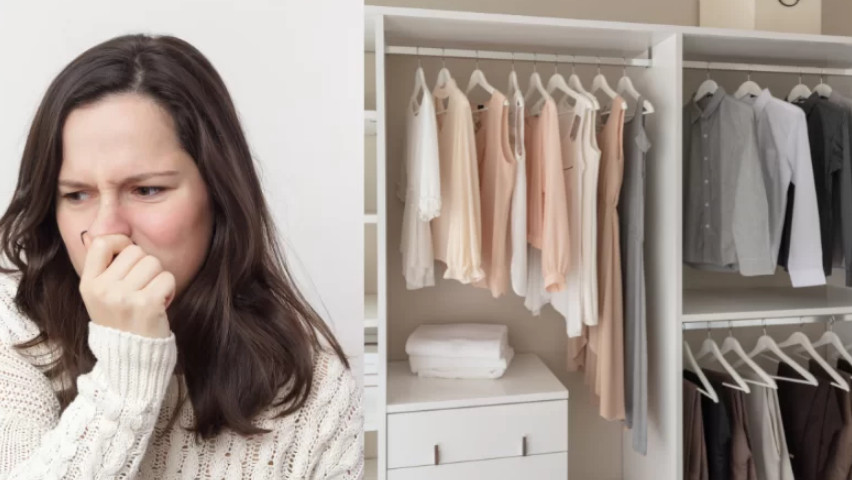How to get rid of damp smell in cupboard
a cabinet has a bad smell from it and it will cause musty smells on clothes, linens, and anything else that’s stored. Not only is this an annoyance, but it could also indicate that something isn’t right, like a lack of ventilation, leakage or humidity. The moisture issue at its root is the first step to a fresh, clean storeroom. I will explain what’s the problem with cupboard odours and provide some solutions to deal with the problem in this essay along with real life and professional recommendations on how to keep your cupboard smelling good.
How To Make Damp Smell Go Away?
Before diving into the solutions, let’s find out why wet odours start in the first place. : Suspension is usually due to excessive moisture in the cupboards which make mold and mildew growth possible. Here are some common causes:
Poor Ventilation: Cupboards – bathroom or kitchen especially – are closed off and don’t get much ventilation. The moisture accumulated with improper ventilation smells musty.
High Humidity: If you live in a moist area or keep wet things in the cupboard, this makes things humid which promotes mold and mildew.
Leaks from Water: Leaking pipes or wall-water can get into the cupboard and cause dampness and smells.
Preserving Wet or Damp Items: Placing damp clothes, towels or shoes in the cupboard draws water inside and creates a breeding ground for mold.
No Sunlight: Cupboards in a dark space are more likely to get damp as sunlight destroys mold and bacteria.
It’s only after knowing those causes that you can resolve the issue. Once you know the origin of the moisture, you can then do specific things to stop the smell and make it never happen again.

Guides To Remove Damp Smell In A Step-by-Step Process.
1. Clean and Declutter the Cupboard
The very first step towards fixing a smelly cupboard is to empty and clear out the cupboard. Scan everything and check for mold or mildew. Wash the shelves, walls, and corners with white vinegar and water (1:1) or a mild detergent. Vinegar is an organic deodorant and disinfectant, so it’s a great product to clean up odours and eliminate mould spores.
Real-Life Example: I once noticed a musty odour in my linen cabinet and decided it was from a wet towel I hadn’t fully dried. Take off the towel and clean the cupboard with vinegar and the odour vanished in one day.
Ethan Caldwell, as the author of this article and a home management expert, says :
Expert tip: Wipe the cupboard with a microfiber cloth because it holds dust and mould particles. Don’t use corrosive chemicals because they odour very badly.

2. Improve Ventilation
You need good ventilation to avoid waterlogging. If your cupboards have doors, open them a few hours every day to let air flow in. Look into vents or mini-fans for better ventilation (especially in bigger cupboards).
Expert Pro Tip: Keep a small bowl of baking soda or activated charcoal in the cabinet to soak up moisture and smells. Replace it every couple of weeks for best results.
3. Use Moisture Absorbers
Moisture absorbers (like silica gel sheets, desiccant bags or even commercial dehumidifiers) can help to drier up the cupboard. These are products that can really come in handy in small enclosed rooms.
A Testimonial: I live in a coastal climate where humidity is a thing and moisture absorbers have changed my cupboard life for the better. So I keep a few packets of silica gel in my shoe cupboard and they do wonders.
Expert Tip: To make your own DIY moisture absorber, just fill a tiny cloth bag with raw rice or cat litter. Both are very absorbent and will also prevent dampness.
4. Address Water Leaks
Check the cupboard and surroundings for moisture if you think that a leak is the culprit of the damp smell. Look for pipes that are broken, wall holes, or water stains. To avoid more damages and smells, repairing the leak is key.
Expert Tip: Inspect walls or floors for occult moisture with a moisture tester. You can use this tool to see problem areas you can’t see from the surface.
5. Dry Items Completely Before Storing
Make sure that clothes, towels, etc. are all dry before putting them in the closet. Even moderately wet objects create moisture and growth of mold.
A Personal Testimonial: I once stored slightly wet hiking boots in my cupboard only to smell musty days later. Since then, I now air-dry everything thoroughly before packing it away.
Tip from an Expert: Dry some items more quickly with a fan or hairdryer for products that are slightly damp.
6. Use Natural Deodorizers
Natural deodorants like essential oils, citrus peels or dried herbs can be used to keep your cupboard smelling great. Sprinkle a couple drops of essential oil on a cotton ball or a baggie of lavender, rosemary or cedar shavings.
Tips from the Experts: Tea tree oil is naturally antifungal, which prevents mold formation. Sprinkle a few drops with water in a spray bottle and mist the inside of the cupboard.
7. Regularly Air Out the Cupboard
Check out your cupboard every few months. Remove everything and leave the doors unclosed for a few hours so fresh air circulates. This little trick can keep moisture away and the cupboard fresh.
Expert Advice: Have a small fan nearby so that air is drawn to it while you are airing-out.
Stop Damp Smell from Happening In the Future.
When the wet odour is gone, you’ll need to take preventative action so that it doesn’t happen again. Here are some tips:
Keep a Tab on the Humidity: Observe the humidity of your house with a hygrometer. Ideally, humidity in your home is 30% to 50%. If that is higher, invest in a dehumidifier.
Check the Cupboard Frequently: Keep an eye on your cupboard every now and then for moisture, mold or mildew. You can catch it early, and get rid of the problem before it becomes serious.
Close Items Properly: Use airtight containers for clothes, linens and so on. This doesn’t just keep them dry, but fresh.
Use Airy Fabrics: Never use plastic bags or unbreathable covers to store clothes. Choose cotton or fabric storage bags in place.
Dry the Cupboard: If you live in an area that is heavily humid, put in a small electric dehumidifier or moisture-absorbing products in the cupboard.
- How do you get the musty smell out of cupboards?
To remove musty smells from cupboards, clean the surfaces with a mixture of vinegar and water or baking soda and water. Ensure the cupboard is completely dry afterward. Place an open box of baking soda or activated charcoal inside to absorb lingering odors. Regularly air out the cupboard by leaving the doors open for a few hours. - What neutralizes damp smell?
Damp smells can be neutralized using natural deodorizers like baking soda, activated charcoal, or white vinegar. Place bowls of these substances in the affected area to absorb moisture and odors. Ensure proper ventilation by opening windows or using a dehumidifier. Fix any leaks or sources of moisture to prevent the smell from returning. - What absorbs smells in a cupboard?
Baking soda, activated charcoal, and coffee grounds are effective at absorbing smells in a cupboard. Place an open container of any of these inside the cupboard and replace them every few weeks. Silica gel packets can also help reduce moisture and odors. Regularly cleaning the cupboard with mild detergent or vinegar can prevent odors from building up. - How do I get rid of a musty and damp smell in my closet?
Start by removing all items and cleaning the closet with a vinegar-water solution or a mild detergent. Dry the area thoroughly. Use moisture absorbers like silica gel or a dehumidifier to reduce dampness. Place odor absorbers like baking soda, activated charcoal, or cedar blocks inside the closet to eliminate musty smells. Ensure proper ventilation by keeping the closet door open occasionally.
Article source:

I’ve been dealing with that musty smell in my closet for weeks, and the tip to use baking soda has been a game changer. I simply sprinkled it around, left it overnight, and vacuumed it up the next day. The smell is almost gone! Highly recommend this method for anyone facing the same issue.
I always kept my cupboard doors closed, thinking it was safer for my clothes, but the moisture just built up. After following the suggestion to open the doors for a few hours each day, I’ve noticed a huge improvement. Thanks for this helpful advice
I had no idea that leaky pipes could be the culprit for damp smells in my cupboards! After checking around my plumbing, I found a small leak and fixed it right away. It’s crazy how such a tiny problem can cause big issues. Definitely going to keep an eye on that from now on
Activated charcoal really works! I placed a couple of pouches in my cupboard after cleaning it, and the damp smell was gone within a few days.
I’ve tried essential oils before, but I wasn’t aware they could help with mildew! I used lavender oil and it not only made my cupboard smell better but it also felt cleaner. I like how you can make your own sachets too—it’s a nice touch that adds a little more charm.
I followed the advice to clean my cupboard with vinegar and baking soda, and I’m amazed at how effective it was! I’ve tried other cleaning methods, but nothing worked as well. The smell was completely gone, and it even left the shelves shining.